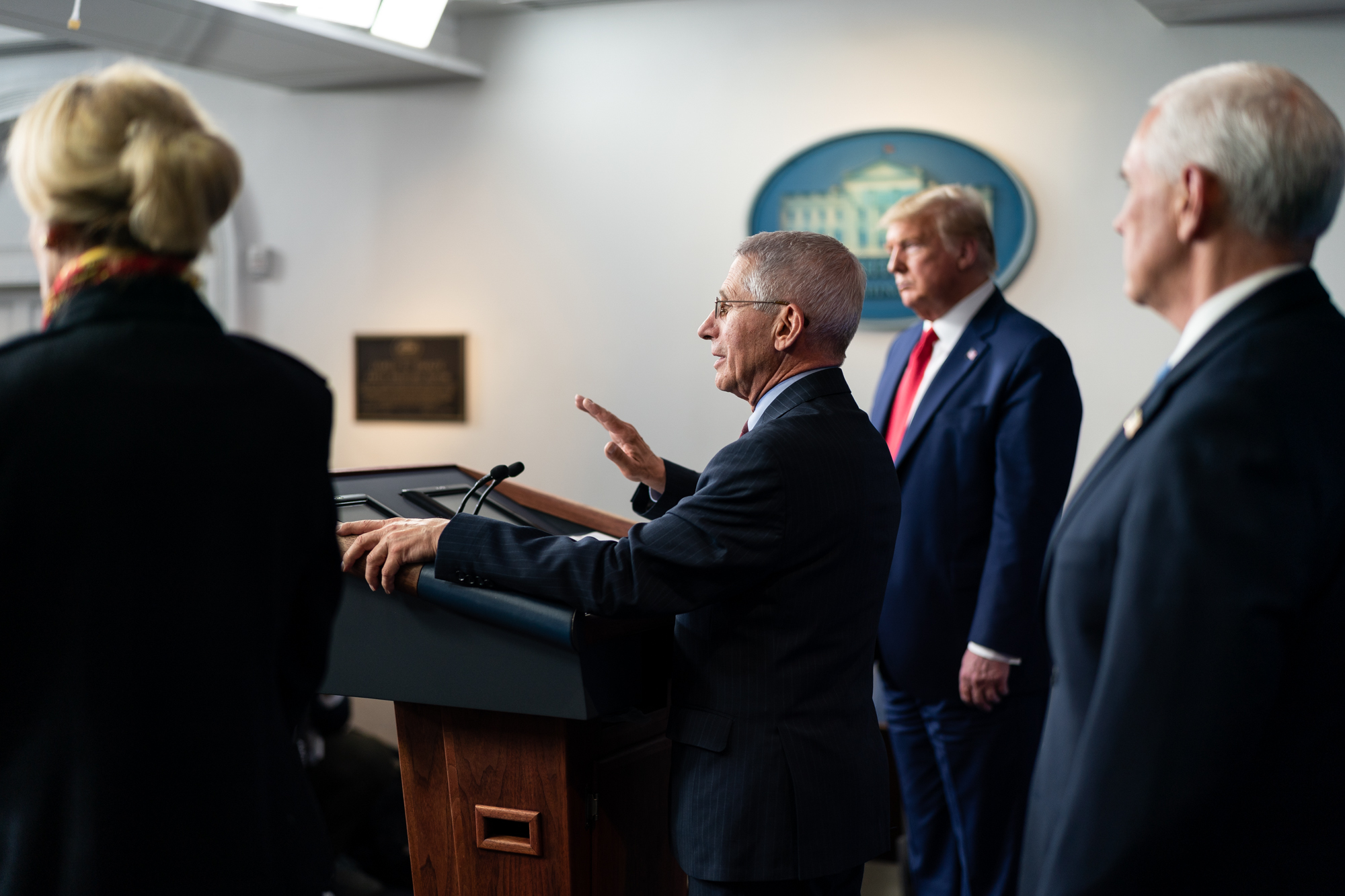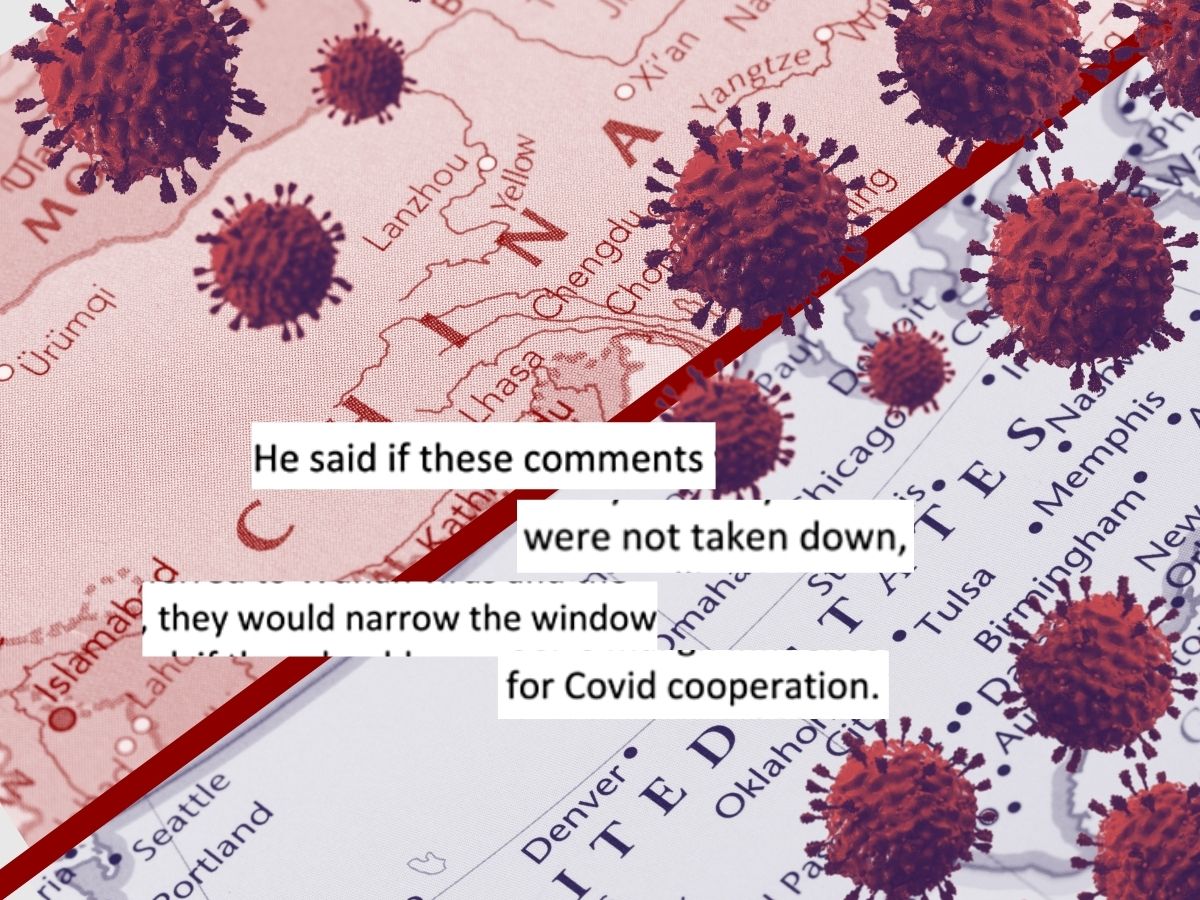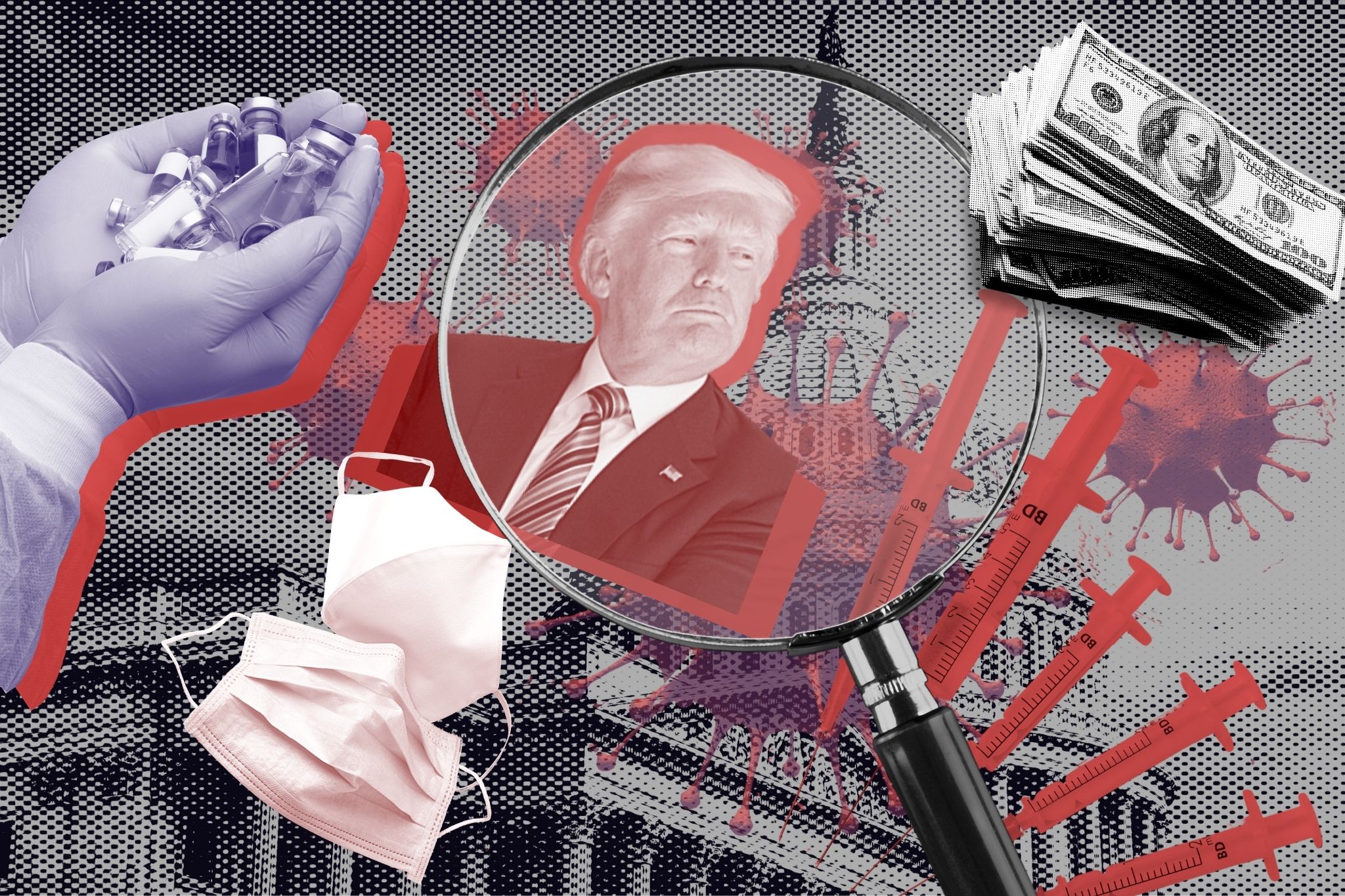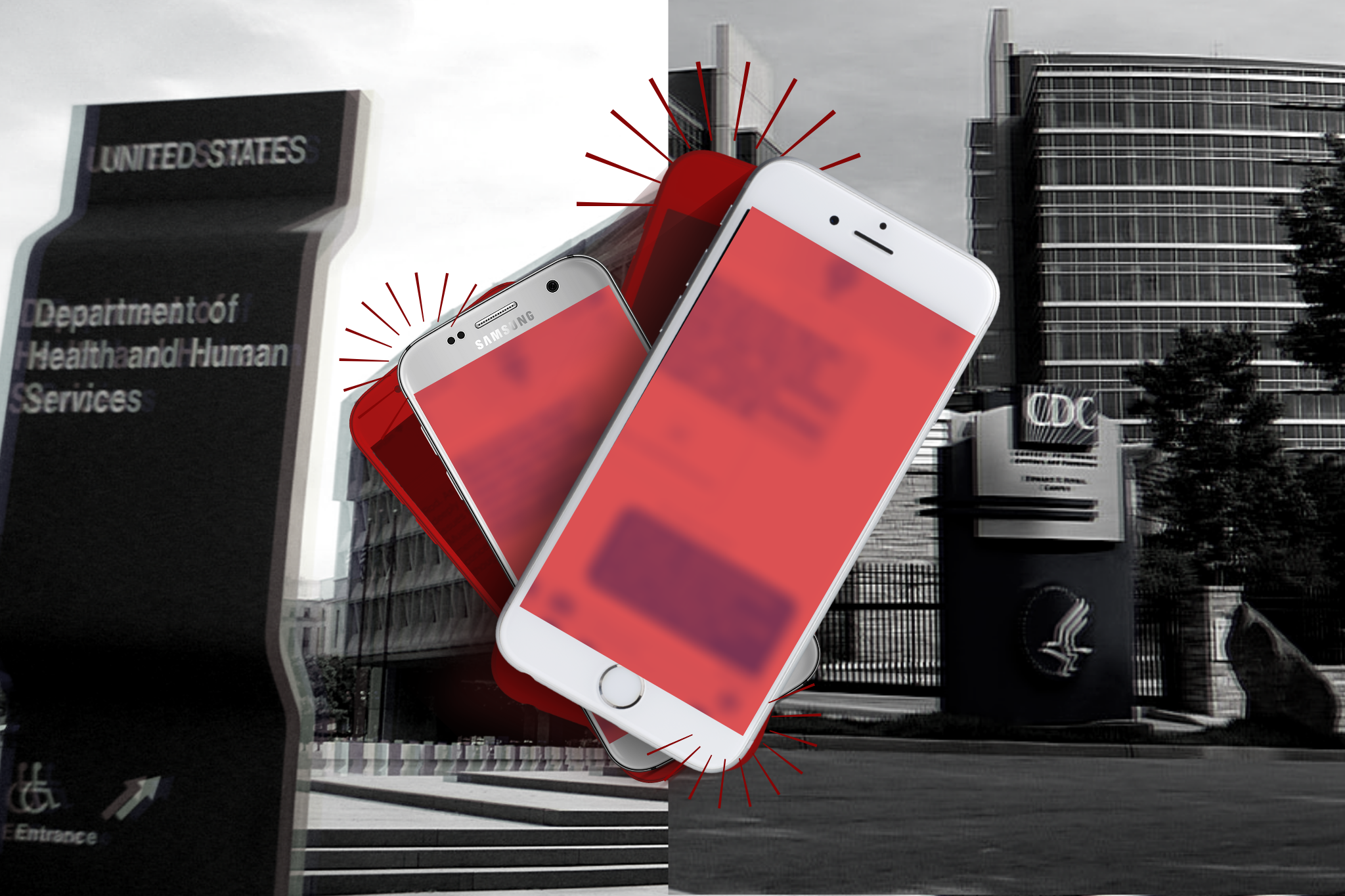
Trump White House Control of Information During the Pandemic
Former President Trump’s early denials about the severity of Covid-19 quickly morphed into a misguided strategy of sidelining experts and exerting political control over messaging. Our investigation aims to uncover to what extent the Trump White House interfered with coronavirus-related information in service of the president’s political interests.

During a public health crisis such as the coronavirus pandemic, trust in institutions and government agencies is vital. But from the first months of the pandemic, President Donald Trump repeatedly undermined medical experts and scientists as his administration sought to stifle and control information about the disease’s spread. Trump’s own statements — including downplaying Covid-19 as a regular flu and blaming the Obama administration — reflected what many saw as a preoccupation with the economy and his own political standing instead of public health.
Several top health officials told congressional investigators in 2021 that the Trump administration interfered with attempts by the Centers for Disease Control and Prevention to issue clear warnings and guidance regarding the pandemic. In one early example, senior CDC health expert Nancy Messonnier, who resigned in May 2021, warned Americans on Feb. 25, 2020, that the spread of Covid-19 in the U.S. was “inevitable,” angering Trump and prompting him to block the CDC’s media appearances. The agency held no news briefings between March 9 and May 29, 2020, as the White House sought to control all messaging regarding the crisis.
Controlling Expert Involvement in Pandemic Messaging and Response
On Feb. 28, 2020, Rep. John Garamendi told reporters that Dr. Anthony Fauci, the director of the National Institute of Allergy and Infectious Diseases, was directed to “stand down” and to cancel five Sunday morning talk show appearances. That same day, CNN reported that acting White House Chief of Staff Mick Mulvaney had sent a government-wide email saying that all coronavirus-related communications must go through Katie Miller, the press secretary for Vice President Mike Pence, who had just taken control over the federal government’s response to the coronavirus.
Records obtained by American Oversight illustrate the administration’s tight grip on Fauci’s media appearances.
- On March 1, 2020, Katie Miller responded to a media request from Fox Business asking if the NIH director, Francis Collins, could speak on a show. “No to Fauci,” Miller wrote. “Trying to get someone else.”
- Two days later, a CBS journalist emailed saying that 60 Minutes would be “speaking with Dr. Fauci later this week.” Miller forwarded the email to HHS and NIAID officials and wrote, “Who cleared this? Until we can figure out how to better coordinate – please pull this down.”
- On May 27, White House coronavirus response coordinator Deborah Birx emailed Fauci, asking, “Saw you on CNN – have they let you out?” Fauci replied, “Yes and no. Really crazy,” explaining that the HHS sent an email notifying him that his clearance was withdrawn, but only after he had already made the appearance. “Too late, already did it,” he wrote about the incident. According to emails obtained by Politico, HHS officials also instructed Fauci’s press team to have him make certain statements, such as discouraging children from wearing masks in schools.
The Trump White House’s attempt to control information about Covid-19 not only involved sidelining scientific experts, but also blocking out other members of the administration. Documents obtained by American Oversight show that HHS Secretary Alex Azar was also frequently shut out of pandemic-related meetings.
- In one text message sent in March 2020, Azar told the HHS deputy chief of staff that Assistant Secretary for Health Brett Giroir and Centers for Medicare and Medicaid Services Administrator Seema Verma were invited to prepare for a press conference with an official whose name is redacted in the records. “I’m told expressly to stay in lobby,” Azar wrote. “This really is untenable.”
- In numerous other messages to health officials, Azar expressed frustration and confusion at repeatedly missing out on meetings and information. “I feel I’m in the dark,” he wrote on May 15. “I don’t know why they shun expertise,” he wrote on July 6.
Altering and Politicizing Health Guidance
In February 2020, the Washington Post reported that “the White House has been obsessed with a ‘communications problem.’” Questions arose about changes to a page on the CDC’s website and, later, about the removal of Dr. Rick Bright as director of the Biomedical Advanced Research and Development Authority. The White House and political appointees had also pressured the CDC to alter its Morbidity and Mortality Weekly Reports so as to conform with White House efforts to downplay the severity of the pandemic, and interfered in the creation of public health guidance, including regarding testing.
As the number of cases drastically increased over the summer of 2020, the White House continued to take worrying actions to further divide the president and science. A senior adviser at the Department of Health and Human Services denounced a CDC report about risks to pregnant women as “undermining the president,” and Trump publicly criticized the CDC’s recommendations for the safe reopening of schools in the fall. In July came the alarming news that the administration had ordered hospitals to send all Covid-19 patient data to HHS instead of the CDC, igniting fears that the information could be politicized, or even withheld from the public. Further attacks on Fauci painted a troubling picture of an administration opposed to facts, science, and expertise when they don’t serve the president’s political interests.
In the months since the Trump administration ended, congressional inquiries and public reports have continued to reveal more about the administration’s harmful control over public health information. American Oversight has also been examining how this aversion to inconvenient realities led to a tightening grip on data and public information, undermining efforts to combat the pandemic.








